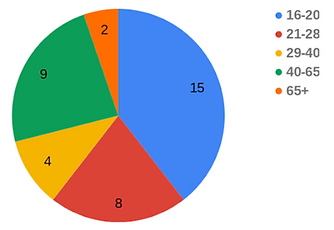Recovery-Oriented
Systems of Care
Schaumburg, Hoffman Estates,
Elk Grove, Palatine, and Hanover

The Recovery-Oriented Systems of Care (ROSC) grant serves the Townships of Schaumburg, Palatine, Elk Grove, Hanover Park, and a small western portion of Main Township served by Elk Grove High School by establishing a ROSC Council made up of the Communities for Positive Youth Development (CPYD) coalition and a ROSC subcommittee.
Our target population includes ages 14-65 with a particular focus on veterans and youth/young adults, ages 14-25.
Project Expectations
-
Identify and address the needs of the recovery community and promote infrastructure development of Recovery Community Organizations (RCOs) through training and education on issues such as operations, billing systems, recruitment, sustainability and integration into larger systems.
-
Involve people with lived experience. Lived Experience means personal knowledge about substance use disorders (SUDs), including co-occurring mental health and substance use disorders (CODs) treatment, and recovery gained through direct involvement, which may include that individual's involvement as a patient, family member or loved on of a person receiving SUD/COD treatment services.
-
Create an integration of systems within the ROSC, local hospitals, primary care, mental health, law enforcement, local business owners, local government representatives and policy makers, persons with lived experience and SUD intervention, treatment, prevention and recovery support service providers.
-
Build a menu of services and supports including all the components listed in the definition above: person-centered, building on strengths/resiliencies, coordinated, and community based.
-
Organize the logistics of ROSC Council meetings, stipends to ensure the participation of persons with lived experience, training cost or website administration costs. Plans that include the development of Recovery Community Organizations (RCOs) in the ROSC are strongly encouraged.
-
Build capacity for communities to provide advocacy, education, and recovery support services for people in recovery from SUDs and co-occurring (SUD/Mental Health) Disorders (COD).
-
Map resources and assess needs including: readiness for a recovery community organization.
-
Inform, educate, and empower individuals and communities, expanding access to a comprehensive array of prevention, treatment and peer recovery support service options.
Community Needs Assessment
We conducted a community needs assessment from October to December. This was an in-depth, voluntary assessment on the recovery resources available within the community. The assessment received 41 total responses.
The statements that participants most disagreed with included:
-
Most services are provided in a person's natural environment (e.g., home, community, workplace).
-
Barriers (e.g., childcare, transportation) are addressed for participants.
-
Individuals have timely access to the services and supports that are most helpful for them
-
Interim services are available for people on waiting lists and/or who are not ready to commit to treatment.
-
The community receives education about mental illness and addictions.
-
Cities, township ordinances are receptive to sober lifestyle communities (e.g., housing, self-help groups, consumer advocacy groups).
-
The community formally acknowledges and celebrates the achievement of goals of people in recovery.
-
Strategies to decrease stigma are conveyed to all partners and are consistently implemented in communities.
Illinois Recovery Oriented Systems of Care
What is Recovery?
-
A process of change through which individuals improve their health and wellness, live a self-directed life, and strive to reach their full potential. (SAMHSA working definition)
-
Recovery from alcohol and drug problems is a process of change through which an individual achieves abstinence and improved health, wellness, and quality of life. (ATR Approaches to ROSC)
Vision
-
People can and do recover.
-
Individuals and families determine the supports and services they need.
-
Services and supports are continuous, cohesive across different phases of care and are coordinated across the various agencies involved in their delivery.
-
Support of recovery is a community responsibility and value.
-
There is inherent flexibility in the system so it can be responsive to different pathways to recovery.
-
Measuring quality and outcomes is a system priority.
Values
-
Recognize the right of a person to direct their own recovery and that there are many models of, and paths to, recovery.
-
Operate with integrity and a sense of personal responsibility.
-
Include the "voice" of peers, family members, and the community in planning and decision-making.
-
Implement programs with competency and good stewardship.
-
Empower individuals and families.
-
Embrace cultural diversity
Goals
-
Building a culture that builds and nurtures recovery.
-
Building capacity and infrastructure to support a recovery-oriented system of care.
-
Developing commitment to implement and sustain a recovery-oriented system of care.







